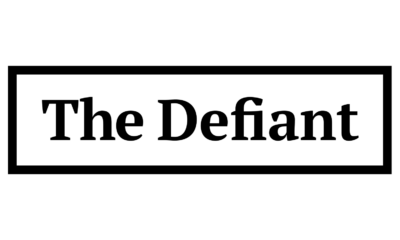News
The Future of Bitcoin and Solv Finance – SolvBTC Opens New Frontiers

Bitcoin is experiencing rapid growth in decentralized finance (DeFi) and Solv Finance is a platform that has introduced new uses in the industry by introducing new solutions like SolvBTC to integrate Bitcoin into DeFi.
Solv Finance – An Overview
Solv Finance is disrupting decentralized finance (DeFi) by making it easy for everyone to achieve excellent returns on their investment. They bridge the gap between traditional finance and the rapidly growing blockchain space.
Their flagship product, Liquid Yield Tokens, makes it easier and more efficient to earn returns. These tokens combine returns from multiple sources so users can earn more and reduce risk. This is a game changer for anyone interested in yield farming.
One of their recent innovations is SolvBTC. This product allows Bitcoin holders to access DeFi on popular blockchains like Ethereum, Arbitrum, and BNB Chain. With SolvBTC, you can earn stable returns on your Bitcoin, making it more useful and valuable. Solv Finance shows how Bitcoin can thrive in DeFi and make it more accessible and profitable for everyone.
Recent Milestones and Achievements
On May 22, 2024, Solv Finance Reaches $1 Billion TVL, an important milestone for the platform which places it among the 32 best DeFi platforms in the world. This was driven by smart integrations with large blockchain networks like Arbitrum, BNB Chain and Merlin Chain, which increased liquidity and made SolvBTC more accessible.
Then, on June 5, 2024, Solv Finance partners with Ethena to launch the SolvBTC Yield Vault. This is a game changer for Bitcoin holders: they can earn solid returns through smart strategies and bonuses. It has bridged the gap between Bitcoin and other assets like Ethereum in terms of earning potential.
One day later, on June 6, 2024, Solv Finance partnered with Binance Web3 Wallet to bring even more Bitcoin into DeFi. They launched a campaign to create a BTCFi community and reward users who stake their Bitcoin with SOLV tokens. This is about getting more people involved and increasing liquidity, demonstrating Solv Finance’s commitment to innovation and Bitcoin in DeFi.
Bitcoin in DeFi
Bitcoin Finance, or BTCFi, introduces Bitcoin to the world of decentralized finance (DeFi). This means going beyond just using Bitcoin as a store of value or paying for things. By integrating Bitcoin with DeFi, BTCFi opens up new ways for holders to earn and participate in innovative financial activities previously only available on Ethereum.
Bitcoin in DeFi is growing rapidly with layer 2 networks and sidechains making transactions faster and more efficient. The Ordinals protocol and BRC-20 tokens also have a big impact. The Ordinals protocol allows you to create digital assets, like NFTs, on the Bitcoin blockchain and BRC-20 tokens allow you to create and trade fungible tokens like ERC-20 tokens on Ethereum.
One of the most interesting examples of Bitcoin in DeFi is SolvBTC. This product from Solv Finance allows Bitcoin holders to obtain stable and high-quality returns. SolvBTC achieves this by symbolizing the best returns in centralized and decentralized finance.
It works on multiple chains, Ethereum, Arbitrum, BNB Chain and Merlin Chain, which increases liquidity and allows users to more easily access the BTCFi ecosystem. This multi-chain approach makes SolvBTC more accessible and shows its importance in Bitcoin’s DeFi journey.
Bitcoin Use Cases
Bitcoin holders have many ways to earn money through Solv Finance’s innovative products and partnerships. By converting your Bitcoin to SolvBTC, you can generate high returns, blending the best of centralized and decentralized finance for a stable income.
Partner with Ethena and you can earn more on your SolvBTC with advanced yield strategies like delta neutral arbitrage. Integrating Solv Finance with new channels also opens up more opportunities. For example, by pairing SolvBTC with programs like zkLinkNova’s Aggregation Parade, you can earn bonus farming points. These points can be exchanged for Solv Points and SOLV token airdrops.
SolvBTC also opens DeFi applications. You can use it as collateral in lending protocols to borrow other assets or stablecoins without selling your Bitcoin, giving you more liquidity and investment options. You can also use SolvBTC on decentralized exchanges and other DeFi platforms to trade, participate, and participate in various financial activities across multiple chains.
This makes Bitcoin more useful and integrates it deeper into the DeFi ecosystem, so there are many ways to increase your wealth.
The future of Bitcoin and Solv Finance
The future looks bright for Bitcoin and Solv Finance in the DeFi space. Bitcoin is catching up to Ethereum with new technologies such as layer 2 solutions, sidechains and protocols like Ordinals and BRC-20. Due to its liquidity and reputation, Bitcoin could soon rival Ethereum in DeFi.
Imagine a BTCFi ecosystem where Bitcoin holders can easily borrow, farm, and trade. This ecosystem would use the security and acceptance of Bitcoin and add DeFi functionality, both for current Bitcoin holders and new users.
Solv Finance is leading the charge with collaborations and integrations to create Bitcoin DeFi. Future partnerships will include more blockchain integrations and new financial instruments that leverage Bitcoin’s strengths, liquidity and accessibility.
As Bitcoin DeFi evolves, expect better scalability, more complex financial products, and greater interoperability between blockchains. Solv Finance is poised to lead this charge and make Bitcoin a major player in DeFi.
Conclusion
Solv Finance is making big strides in DeFi with SolvBTC. They have reached major milestones like $1 billion in TVL and partnered with Ethena and Binance Web3 Wallet. It is a commitment to making Bitcoin more useful and profitable in DeFi.
Bitcoin is growing rapidly in DeFi with new protocols and integrations that allow it to compete with other leading blockchains. Now is the time to discover SolvBTC and get involved. With SolvBTC, you can earn, produce yield, and support the growth of the Bitcoin DeFi ecosystem.
Bitcoin brings security, liquidity and trust to DeFi. Solv Finance is at the forefront of this change and pushing the boundaries of what Bitcoin can do in DeFi. As Bitcoin becomes DeFi, the financial landscape will change with new opportunities. Solv Finance is leading this change and helping users get the most out of it and unlock the DeFi potential of Bitcoin.
News
Bitcoin soars above $63,000 as money flows into new US investment products

Bitcoin has surpassed the $63,000 mark for the first time since November 2021. (Chesnot via Getty Images)
Bitcoin has broken above the $63,000 (£49,745) mark for the first time since November 2021, when the digital asset hit its all-time high of over $68,000.
Over the past 24 hours, the value of the largest digital asset by market capitalization has increased by more than 8% to trade at $63,108, at the time of writing.
Learn more: Live Cryptocurrency Prices
The price appreciation was fueled by record inflows into several U.S.-based bitcoin cash exchange-traded funds (ETFs), which were approved in January this year.
A Bitcoin spot ETF is a financial product that investors believe will pave the way for an influx of traditional capital into the cryptocurrency market. Currently, indications are favorable, with fund managers such as BlackRock (BLK) and Franklin Templeton (BEN), after allocating a record $673 million into spot Bitcoin ETFs on Wednesday.
Learn more: Bitcoin’s Success With SEC Fuels Expectations for an Ether Spot ETF
The record allocation surpassed the funds’ first day of launch, when inflows totaled $655 million. BlackRock’s iShares Bitcoin Trust ETF (I BITE) alone attracted a record $612 million yesterday.
Bitcoin Price Prediction
Earlier this week, veteran investor Peter Brandt said that bitcoin could peak at $200,000 by September 2025. “With the push above the upper boundary of the 15-month channel, the target for the current market bull cycle, which is expected to end in August/September 2025, is raised from $120,000 to $200,000,” Brandt said. published on X.
The influx of capital from the traditional financial sphere into Bitcoin spot ETFs is acting as a major price catalyst for the digital asset, but it is not the only one. The consensus among analysts is that the upcoming “bitcoin halving” could continue to drive flows into the bitcoin market.
The Bitcoin halving is an event that occurs roughly every four years and is expected to happen again next April. The halving will reduce the bitcoin reward that miners receive for validating blocks on the blockchain from 6.25 BTC to 3.125 BTC. This could lead to a supply crunch for the digital asset, which could lead to price appreciation.
The story continues
Watch: Bitcoin ETFs set to attract funds from US pension plans, says Standard Chartered analyst | Future Focus
Download the Yahoo Finance app, available for Apple And Android.
News
FRA Strengthens Cryptocurrency Practice with New Director Thomas Hyun

Forensic Risk Alliance (FRA), an independent consultancy specializing in regulatory investigations, compliance and litigation, has welcomed U.S.-based cryptocurrency specialist Thomas Hyun as a director of the firm’s global cryptocurrency investigations and compliance practice. Hyun brings to the firm years of experience building and leading anti-money laundering (AML) compliance programs, including emerging payment technologies in the blockchain and digital asset ecosystem.
Hyun has nearly 15 years of experience as a compliance officer. Prior to joining FRA, he served as Director of AML and Blockchain Strategy at PayPal for four years. He established PayPal’s financial crime policy and control framework for its cryptocurrency-related products, including PayPal’s first consumer-facing cryptocurrency offering on PayPal and Venmo, as well as PayPal’s branded stablecoin.
At PayPal, Hyun oversaw the second-line AML program for the cryptocurrency business. His responsibilities included drafting financial crime policies supporting the cryptocurrency business, establishing governance and escalation processes for high-risk partners, providing credible challenge and oversight of front-line program areas, and reporting to the Board and associated authorized committees on program performance.
Prior to joining PayPal, Hyun served as Chief Compliance Officer and Bank Secrecy Officer (BSA) at Paxos, a global blockchain infrastructure company. At Paxos, he was responsible for implementing the compliance program, including anti-money laundering and sanctions, around the company’s digital asset exchange and its asset-backed tokens and stablecoins. He also supported the company’s regulatory engagement efforts, securing regulatory approvals, supporting regulatory reviews, and ensuring compliance with relevant digital asset requirements and guidelines.
Thomas brings additional experience in payments and financial crime compliance (FCC), having previously served as Vice President of Compliance at Mastercard, where he was responsible for compliance for its consumer products portfolio. He also spent more than seven years in EY’s forensics practice, working on various FCC investigations for U.S. and foreign financial institutions.
Hyun is a Certified Anti-Money Laundering Specialist (CAMS) and a Certified Fraud Examiner (CFE). He is a graduate of New York University’s Stern School of Business, where he earned a bachelor’s degree in finance and accounting. Additionally, he serves on the board of directors for the Central Ohio Association of Certified Anti-Money Laundering Specialists (ACAMS) chapter.
Commenting on his appointment, Hyun said, “With my experience overseeing and implementing effective compliance programs at various levels of maturity and growth, whether in a startup environment or large enterprises, I am excited to help our clients overcome similar obstacles and challenges to improve their financial crime compliance programs. I am excited to join FRA and leverage my experience to help clients navigate the complexities of AML compliance and financial crime prevention in this dynamic space.”
FRA Partner, Roy Pollittadded: “As the FRA’s sponsor partner for our growing Cryptocurrency Investigations and Compliance practice, I am thrilled to have Thomas join our ever-expanding team. The rapid evolution of blockchain and digital asset technologies presents both exciting opportunities and significant compliance challenges. Hiring Thomas in a leadership role underscores our commitment to staying at the forefront of the industry by enhancing our expertise in anti-money laundering and blockchain strategy.”
“Thomas’ extensive background in financial crime compliance and proven track record of building risk-based FCC programs in the blockchain and digital asset space will be invaluable as we continue to provide our clients with the highest level of service and innovative solutions.”
“FRA strengthens cryptocurrency practice with new director Thomas Hyun” was originally created and published by International Accounting Bulletina brand owned by GlobalData.
The information on this website has been included in good faith for general information purposes only. It is not intended to amount to advice on which you should rely, and we make no representations, warranties or assurances, express or implied, as to its accuracy or completeness. You must obtain professional or specialist advice before taking, or refraining from, any action on the basis of the content on our website.
News
Bitcoin trades around $57,000, crypto market drops 6% ahead of Fed decision

-
Bitcoin fell in line with the broader cryptocurrency market, with ether and other altcoins also falling.
-
Financial markets were weighed down by risk-off sentiment ahead of the Fed’s interest rate decision and press conference later in the day.
-
10x Research said it is targeting a price target of $52,000 to $55,000, anticipating further selling pressure.
Bitcoin {{BTC}} was trading around $57,700 during European morning trading on Wednesday after falling to its lowest level since late February, as the world’s largest cryptocurrency recorded its worst month since November 2022.
BTC has fallen about 6.3% over the past 24 hours, after breaking below the $60,000 support level late Tuesday, according to data from CoinDesk. The broader crypto market, as measured by the CoinDesk 20 Index (CD20), lost nearly 9% before recovering part of its decline.
Cryptocurrencies have been hurt by risk-off sentiment in broader financial markets amid stagflation in the United States, following indications of slowing growth and persistent inflation that have dampened hopes of an interest rate cut by the Federal Reserve. The Federal Open Market Committee is due to deliver its latest rate decision later in the day.
Ether {{ETH}} fell about 5%, dropping below $3,000, while dogecoin {{DOGE}} led the decline among other major altcoins with a 9% drop. Solana {{SOL}} and Avalanche {{AVAX}} both lost about 6%.
Bitcoin plunged in April, posting its first monthly loss since August. The 16% drop is the worst since November 2022, when cryptocurrency exchange FTX imploded, but some analysts are warning of further declines in the immediate future.
10x Research, a digital asset research firm, said it sees selling pressure toward the $52,000 level due to outflows from U.S. cash exchange-traded funds, which have totaled $540 million since the Bitcoin halving on April 20. It estimates that the average entry price for U.S. Bitcoin ETF holders is $57,300, so this could prove to be a key support level.
The closer the bitcoin spot price is to this average entry price, the greater the likelihood of a new ETF unwind, 10x CEO Markus Thielen wrote Wednesday.
“There may have been a lot of ‘TradeFi’ tourists in crypto – pushing longs all the way to the halving – that period is now over,” he wrote. “We expect more unwinding as the average Bitcoin ETF buyer will be underwater when Bitcoin trades below $57,300. This will likely push prices down to our target levels and cause a -25% to -29% correction from the $73,000 high – hence our $52,000/$55,000 price target over the past three weeks.”
The story continues
UPDATE (May 1, 8:56 UTC): Price updates throughout the process.
UPDATE (May 1, 9:57 UTC): Price updates throughout the process.
UPDATE (May 1, 11:05 UTC): Adds analysis from 10x.
News
The Cryptocurrency Industry Is Getting Back on Its Feet, for Better or Worse

Hello from Austin, where thousands of crypto enthusiasts braved storms and scorching heat to attend Consensus. The industry’s largest and longest-running conference, which can sometimes feel like a religious revival, offers opportunities to chat and listen to leading names in crypto. And for the casual observer, Consensus offers a useful glimpse into the mood of an industry prone to wild swings in fortune.
Unsurprisingly, the mood is noticeably more positive than it was a year ago, when crowds were sparse and many attendees were quietly confiding that they were considering switching to AI. In practice, that means some of the more obnoxious elements are back, but not to the level of Consensus 2018 in New York, when charlatans parked Lamborghinis outside the event and the hallways were lined with booth girls and scammers pitching “ICOs in a box.”
This time around, Elon Musk’s Cybertrucks have replaced Lamborghinis as the vehicle of choice for marketers. One of the most notable publicity stunts was a startup that paid a poor guy to parade around in the Texas sun in a Jamie Dimon costume, wig, and mask, and then staged a mock assault on him by memecoin characters.
Outside the event was a giant “RFK for President” truck, while campaign staffers manned a booth instead — a reflection of both the election year and crypto’s willingness to latch onto any candidate, no matter how outlandish, who will talk about the industry. RFK himself is scheduled to address the conference on Thursday.
Excesses aside, the general sense of optimism was understandable. The cryptocurrency market has not only recovered from the wave of fraud that nearly sank it in 2022, it is riding a new wave of political legitimacy. This month, cryptocurrencies scored once-unthinkable political victories in Washington, D.C., and there is a sense that the industry has not only withstood the relentless regulatory assaults of SEC Chairman Gary Gensler and Sen. Elizabeth Warren, but is poised to defeat them.
And while cryptocurrency is still searching for its flagship application, the optimists I spoke with pointed to signs that it is (once again) upon us. Those signs include the rapid advancement of zero-knowledge proofs as well as the popularity of Coinbase’s Base blockchain and, perhaps most importantly, the large-scale arrival of traditional finance into the world of cryptocurrencies – a development that not only provides a major financial boost, but also a new element of stability and maturity that will, perhaps, tame the worst of crypto’s wilder side. Finally, this consensus marked the end of the Austin era as the conference, under new leadership, will be held in Toronto and Hong Kong in 2025.
The story continues
Jeff John Roberts
jeff.roberts@fortune.com
@jeffjohnroberts
This story was originally featured on Fortune.com
-

 News1 year ago
News1 year agoBitcoin soars above $63,000 as money flows into new US investment products
-

 DeFi1 year ago
DeFi1 year agoEthena downplays danger of letting traders use USDe to back risky bets – DL News
-

 News1 year ago
News1 year agoFRA Strengthens Cryptocurrency Practice with New Director Thomas Hyun
-

 DeFi1 year ago
DeFi1 year agoZodialtd.com to revolutionize derivatives trading with WEB3 technology
-

 Markets1 year ago
Markets1 year agoBitcoin Fails to Recover from Dovish FOMC Meeting: Why?
-

 DeFi1 year ago
DeFi1 year ago👀 Lido prepares its response to the recovery boom
-

 Markets1 year ago
Markets1 year agoWhale Investments in Bitcoin Reached $100 Billion in 2024, Fueling Crazy Investor Optimism ⋆ ZyCrypto
-

 Markets1 year ago
Markets1 year agoWhy Bitcoin’s price of $100,000 could be closer than ever ⋆ ZyCrypto
-

 DeFi1 year ago
DeFi1 year agoPancakeSwap integrates Zyfi for transparent, gas-free DeFi
-

 Markets1 year ago
Markets1 year agoWhales are targeting these altcoins to make major gains during the bull market 🐋💸
-

 DeFi1 year ago
DeFi1 year ago🏴☠️ Pump.Fun operated by Insider Exploit
-

 News1 year ago
News1 year agoHow to make $1 million with crypto in just 1 year 💸📈





